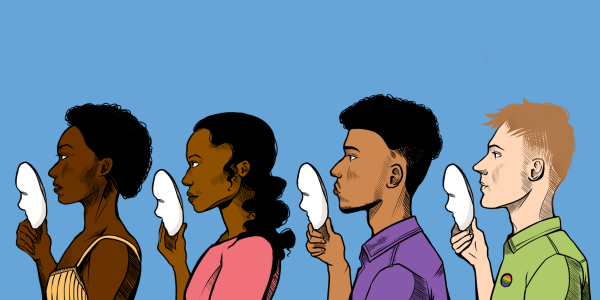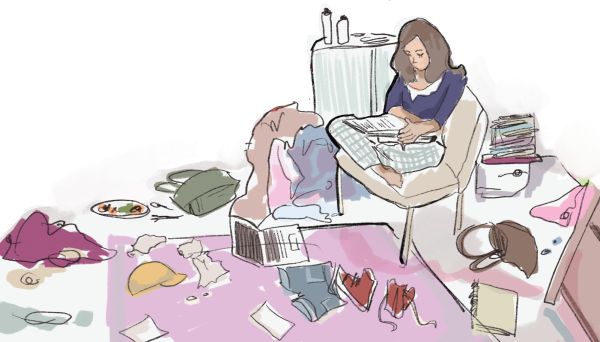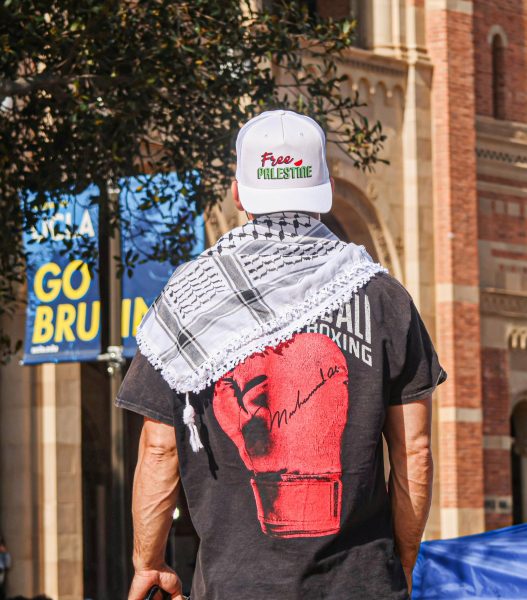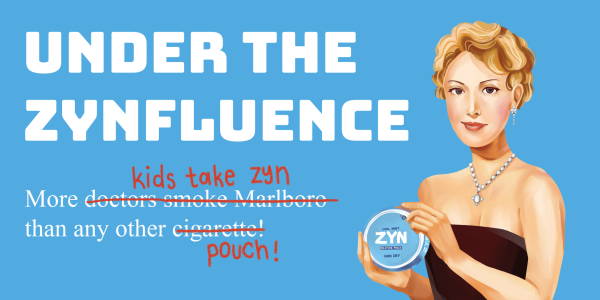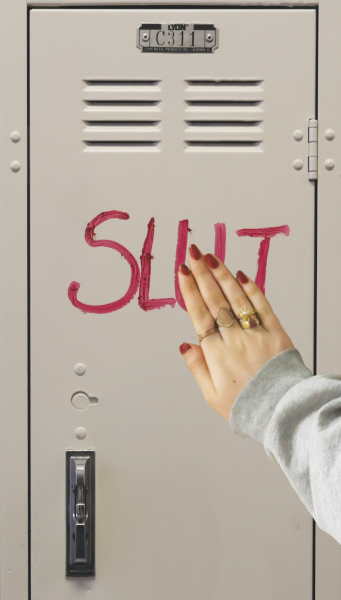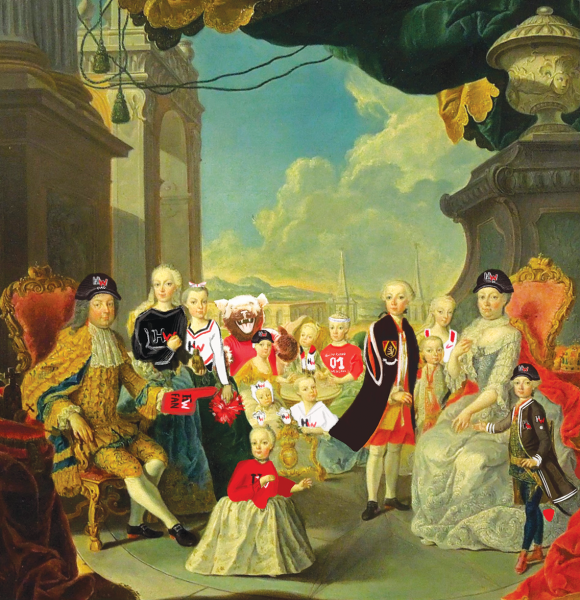Body Bias
Community members discuss the mental toll and societal implications of objectification and sexualization at school.
October 17, 2021
Eager to cool off in the late summer heat, Sam Plageman ’23 took off her sweatshirt, revealing the tight, low-cut spaghetti-strap tank top she was wearing underneath. A close friend approached her and adjusted the shirt to cover her cleavage. Plageman said this seemingly helpful gesture by her friend left her feeling disrespected and uncomfortable.
Plageman said she wondered if her friend wanted to protect her from sexualization or if she had just been sexualized by her own friend for merely showing some skin. Although she said she understood both possibilities, she felt offended.
“It makes me feel like [my friends] don’t trust my judgment and my own opinion of what is appropriate,” Plageman said. “At the same time, I appreciate that they care enough about me to want to protect me or make sure I am doing the right thing.”
Rhea Madhogarhia ’22 said while it feels like society is attempting to combat issues surrounding LGBTQ and racial equality, the
same cannot be said about body positivity. She said she struggles with accepting her body image and separating others’ opinions from her own. She said women are constantly sexualized, which makes her feel self-conscious and leads her to cover her body.
“[Since I have] a different body [type] than some of my friends, if I wear a tank top to school, I [always bring] a jacket in my car or backpack to cover up,” Madhogarhia said. “I think [criticism] hits harder when it is from another girl,” Madhogarhia said. “It is harmful because these discussions are being made to be more comfortable to talk about, but at the same time, the normalization of body types can be unsettling to some people, especially if you are insecure in your own body or somebody that is struggling with body issues. I think that everybody is at a different place with body image and I think that people need to respect that not everyone is on the same page.”
Madhogarhia said some students’ comparisons form other students’ insecurities. Companies like Brandy Melville that only made clothing catered to one body type distort reality, she said.
“[At Brandy Melville,] everything is made for a specific body type, and if you do wear it, then [girls at school] will think that you are trying to fit in with skinny girls,” Madhogarhia said.
Ruby Kemper ’24 said she chooses to wear sweatpants and hoodies to school, because she prefers to be comfortable and ignore the physical competition among her peers at school.
“I think that at school in general, girls are so competitive in wanting to always be skinnier than each other and impressing more guys,” Kemper said. “I find that girls rarely support each other and are constantly judging, and being judged based on their body types.”
Judah Marley ’23 said she notices a social pressure to show off her body at school. She said students put a lot of emphasis on their looks each day.
“I think the pressure comes from society and more specifically, pop culture,” Marley said. “Kids, especially girls, have been exposed at a young age to movies and shows that depict the ‘cute and popular’ girls wearing short skirts, and cropped tops, while the ‘nerdy,’ or ‘loner’ girls wore more full coverage pants and tops or sweaters. This creates the idea that in order to be ‘cool’ or ‘popular’ you need to wear small tops and bottoms.”
Marley said comments about body image are often omitted from discussions at school, but the impact of societal norms regarding
the matter can be seen in one’s everyday life.
“I think people feel uncomfortable talking about [their bodies] because it is so normal in today’s world [to show off their bodies] that there really isn’t a point in discussing it,” Marley said.
Naalah Cohen ’23 said girls should be able to wear what they feel comfortable in, especially since the school’s dress code allows it. She said it is difficult for students to express themselves through fashion because they are so routinely judged.
“I think that showing off your body comes from social pressure,” Cohen said. “I feel like there is a lot of emphases put on looks especially at school.”
Cohen said these conversations are important and they should be discussed at school.
“I think people feel uncomfortable talking about [sexualization] because they do not want to recognize their own bias or work to fix it,” Cohen said. “People put out this message that if you don’t want to be sexualized that you just shouldn’t dress a certain way. I should be able to wear what I want without the fear of being sexualized based on the body that I have.”
School Counselor Michelle Bracken said there is progress being made against sexualization related stereotypes.
“In the ’90s on [the Entertainment and Sports Programming Network (ESPN) for example, you would see commercials of women modeling for beer companies, and it would just be a woman’s back to thighs exposed trying to sell a beer,” Bracken said. “That is not a part of beer; it is sexualizing and objectifying so that women become objects and are being made profits off of.”
From a mental health perspective, Bracken said she sees certain body types being sexualized, and this prevents students from being able to explore their identities.
“Society has developed an image of what men and women should look like in order to be desirable,” Bracken said. “If you are not thin, blond, have flawless skin, [etcetera], then you are not desirable. We know that cognitively to be true, but it is hard to overcome the stereotypes.”
Kemper said while she is glad some people can express themselves through fashion, society often sexualizes young adults based on their clothing, something she has been subject to firsthand.
“Personally I think it’s great when people wear what they want while expressing themselves,” Kemper said. “But sometimes, I think it could get to a point where girls begin to be sexualized by others. I definitely have experienced feeling uncomfortable in situations and constantly noticing myself pulling up my tank top.”
She said this stigma causes girls to obsess over their physique and their general appearance.
“Words like ‘slut’ and ‘hoe’ are thrown around so commonly these days that I’m hyperaware of how I present and portray myself [to others],” Kemper said. “I choose to not expose myself out of fear that I will be sexualized by others. I do not want to be called these negative names just because of the clothes that I am wearing on my body. It frustrates me that I mentally have to go through [all of ] this before deciding [that I’m going] to put on a tank top.”
































